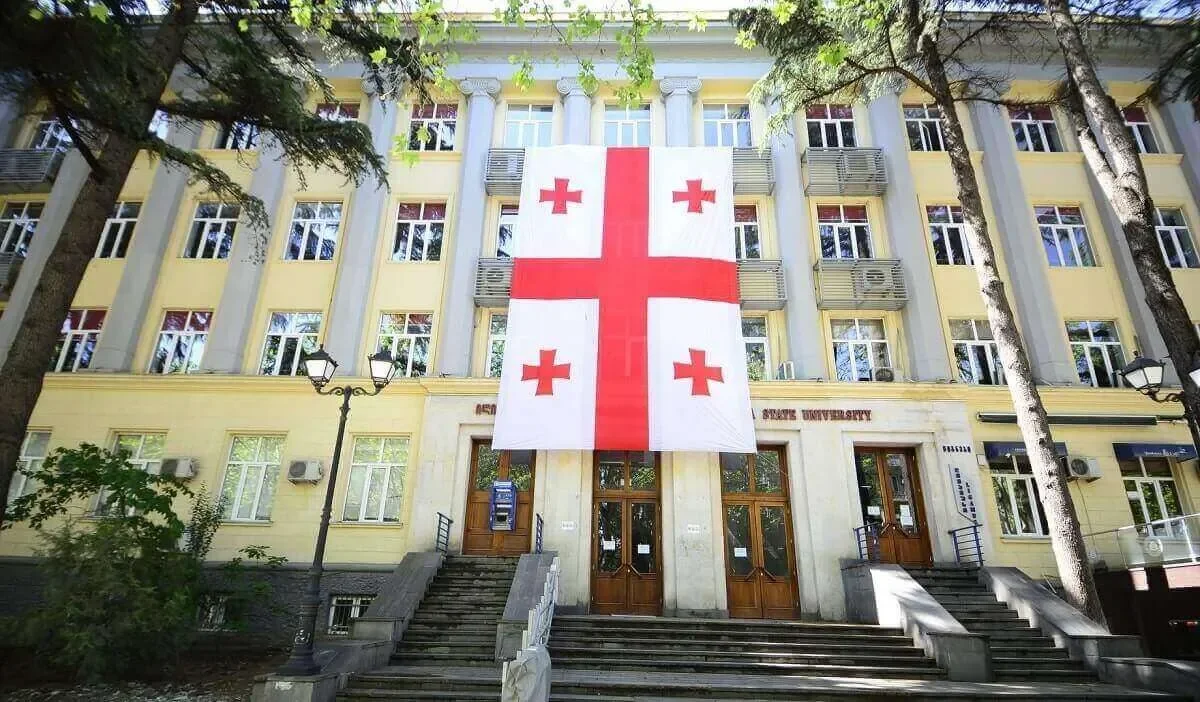

Ilia State University
Ilia State University is a flagship higher education institution in Georgia that was established in 2006 as a merger of six
different institutions, each having a long history and a diverse institutional profile. Its schools offer distinctive training in
their respective direction and in-depth research opportunity in social sciences, humanities, life sciences, earth sciences,
and hard sciences. The leadership remains open to innovative teaching and learning programs and supports research
initiatives to finance research activities (significant allocation for research as part of its annual budget), justly occupying
the top research citation index in Georgia.
The School of Medicine of the Ilia State University (ISU) combines undergraduate and postgraduate medical education and research programs in the field of medicine and public health to both Georgian and international students. The School of Medicine also integrates more than 10 multi-profile affiliated city hospitals, which in turn implement clinical residency programs in all major areas of medicine.
Ivane Abiatari (MD, PhD), Associate Professor at the Ilia State University (ISU), Head of the School of Medicine, Director of the Institute of Medical and Public Health Research, qualified General Surgeon, Specialist of Medical Education certified by the International Association of Medical Education (AMEE), Authorization and Accreditation Expert for higher education and member of Accreditation Board at the National Center for Educational Quality Enhancement of Georgia, Member of the Sectoral Council of Medical Higher Education of Georgia.
Ivane has longstanding experience as a teacher and researcher and is well experienced in project management. He has been involved and supervised medical educational programs development and implementation at ISU. Ivane is in charge of the curriculum implementation and overall quality enhancement. His responsibilities include the development of practical competencies within the medical curriculum and integration of clinical skills modules in basic medical teaching.
Konstantine Gogichaishvili (MD, PhD student), Group Leader of Clinical Skills modules/courses at the ISU, Lecturer and tutor, Full instructor in Basic Life Support registered by European Resuscitation council (ERC), Instructor candidate in Pediatric Basic Life Support, Instructor of instructors’ candidate in BLS. Konstantine has a growing experience as a lecturer in the fields of Clinical Skills (Nursing, First Aid, BLS, PBLS, ACLS) and Problem Based Learning. As a leading instructor, he is responsible for the implementation and enhancement of clinical skills teaching process and assessment. Konstantine has good experience in curriculum management and study process coordination.
Madona Modu (MD, PhD student), Lecturer and tutor at the ISU for Clinical Skills modules. Her academic teaching experience begins from 2012 and includes: Nursing Clinical Skills, Physical Examination, BLS and First Aid, Physiology and Biochemistry of Exercise, Training in Neurorehabilitation. She is a Fulbright award holder for the Faculty Development Program. Madona has experience in practical curriculum development for MD program and bachelor program in Physical Medicine and Rehabilitation.
One essential added value is that we are expanding the network. In the first instance, we are expanding the existing relationship with Ilia State University (ISU). DCU and ISU have a history of collaboration on teaching and
earning projects including Erasmus+ funded projects such as Proffromance project and most relevant to this project is
our collaboration on the INTEGRITY project. The expertise and experience that ISU can provide to this project in relation to assessment will be invaluable and is a natural extension of the work from the INTEGRITY project as involving students with assessment through techniques such as peer assessment is a proven technique to improve academic integrity with assessments. In addition, we are expanding the network to introduce a new relationship between HIO / MUL and ISU.
Both HIO and MUL will benefit from ISU’s expertise and vice versa. There is great potential for future projects. The
collaboration may also expand to include student mobility across ISU and partner institutions, strengthen our ability to
conduct more projects and by sharing resources and expertise. Another essential added value of adding ISU lies in the interdisciplinary collaboration in that the profession of medicine is added to nursing (DCU, MUL) and allied professionals (HIO), ensuring the widest application of project outputs across the healthcare professions.
